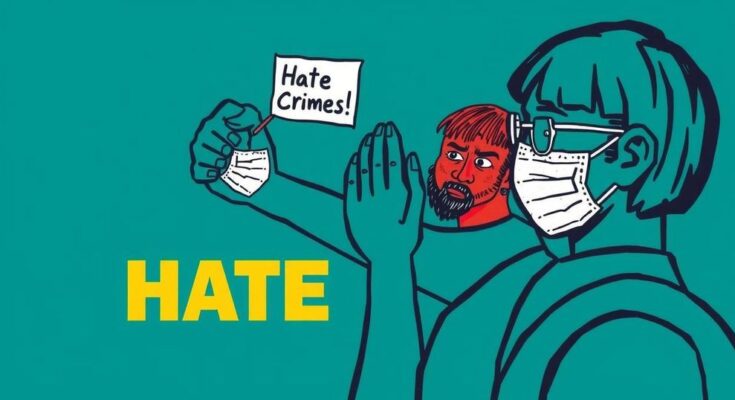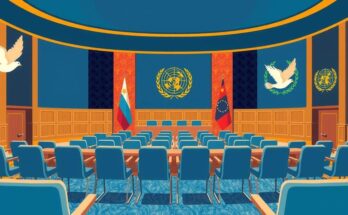The OSCE’s ODIHR stresses the need to prosecute hate crimes properly, revealing gaps in legislation through their annual report. Nearly 10,000 cases were reported, and a new guide aims to assist prosecutors in distinguishing hate crimes from hate speech. Effective collaboration among states, civil society, and international organizations is vital to combatting intolerance and supporting victims.
In a stirring call to action, the OSCE Office for Democratic Institutions and Human Rights (ODIHR) emphasized the crucial need to recognize and prosecute hate crimes effectively. Launched ahead of the International Day for Tolerance, their annual hate crime report reveals a stark landscape where nearly 10,000 cases were reported, highlighting significant gaps in legislative measures. ODIHR’s Director’s Alternate, Tea Jaliashvili, champions the report as a resource for states in combatting intolerance, underlining the indispensable role of civil society in this mission. Many reported hate crimes remain inadequately prosecuted due to confusing distinctions between hate crimes and hate speech. This ambiguity not only obfuscates the victim’s plight—leaving them marginalized and unsupported—but also clouds broader policy initiatives aimed at preventing hatred. To bridge this divide, ODIHR introduced a practical guide for prosecuting hate crimes, offering critical insights into navigating these complex legal waters. According to ODIHR, all OSCE states are obligated to ensure a robust judicial response to hate crime, which means accurately differentiating hate crimes from mere hate speech. With detailed training programs for law enforcement and judicial bodies, ODIHR aims to fortify the entire justice system against intolerance, ensuring victims can seek and receive the support they desperately need. Their comprehensive hate crime report continues to evolve, reflecting the ongoing collaboration between states, civil society, and international organizations. In summary, tackling hate crime necessitates a robust acknowledgment of its bias motives, demanding effective prosecution strategies that empower victims and inform sound policies. By uniting diverse stakeholders, the ODIHR strives to illuminate paths toward justice and resilience against hatred.
The OSCE Office for Democratic Institutions and Human Rights (ODIHR) is a pivotal organization in safeguarding human rights and democracy across its member states. Its focus on hate crime prosecution is critical in a world grappling with increasing intolerance and violence motivated by bias. The annual hate crime report serves as a comprehensive database, drawing on extensive contributions from civil society, states, and international partners, thus highlighting the collective responsibility to combat hate. This ongoing initiative not only aids in protecting victims but also fosters legal clarity and effectiveness in how hate crimes are addressed in the courts.
The ODIHR’s recent report underscores the pressing need for more effective prosecution of hate crimes, showing that many incidents are still misclassified or overlooked entirely. By providing actionable resources like their new guide, ODIHR empowers prosecutors and supports a unified approach against hate crimes. The fight against intolerance is far from over, but with effective legal frameworks and strong civil partnerships, the path toward justice and understanding can be forged, ultimately enhancing the protection of every individual’s rights within the community.
Original Source: www.osce.org



